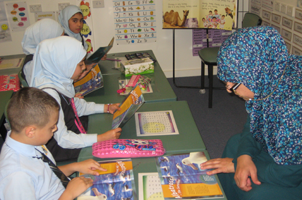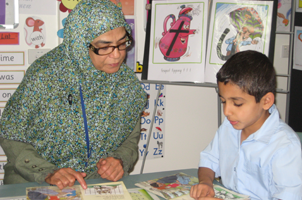Learning Support
The New South Wales Educational Standards Authority (NESA) defines:
Students with difficulties in learning are those who are not achieving the prescribed learning outcomes, according to expectations. These students will experience difficulties for a range of reasons and with varying degrees of intensity and duration. Students who have learning difficulties may include those:
- with English as a second language background
- with a background in Aboriginal English
- from groups with low socioeconomic status
- with an intellectual disability
- with specific learning problems
- who have missed or changed schools frequently
- who have received inappropriate teaching for their learning needs
- with detected or undetected hearing or vision loss.


Assessment
There are a wide range of techniques and procedures for assessing students who are experiencing learning difficulties. Although such techniques and procedures may vary according to the difficulties experienced, they should include skilled observation and/or application of appropriate test materials, e.g. using P & M benchmarks for assessing reading.
Assessment procedures should lead to the provision of quality teaching programs for individual students.
Assessments are conducted by class and learning support teachers. Assessments are an ongoing process.
Once a child is assessed they can be eligible for the following support program:
Small Group Support:
This process involves a small support group engaged in learning s outcomes addressed in common syllabus of the KLA. The teaching and learning variation may be:
- more appropriate pacing of syllabus outcomes to meet the need of support students
- implementing outcomes from earlier stages on the continuum of learning in order to address specific academic needs
- incorporation of a wide range of supportive resources
Individual support:
This process involves the learning support teacher working on a one-to-one basis with students who have been identified as ‘at risk’ of failure. During support sessions, teachers are actively involved in explicit teaching methods; modelling should be utilised in all speaking and listening, reading and writing opportunities.
